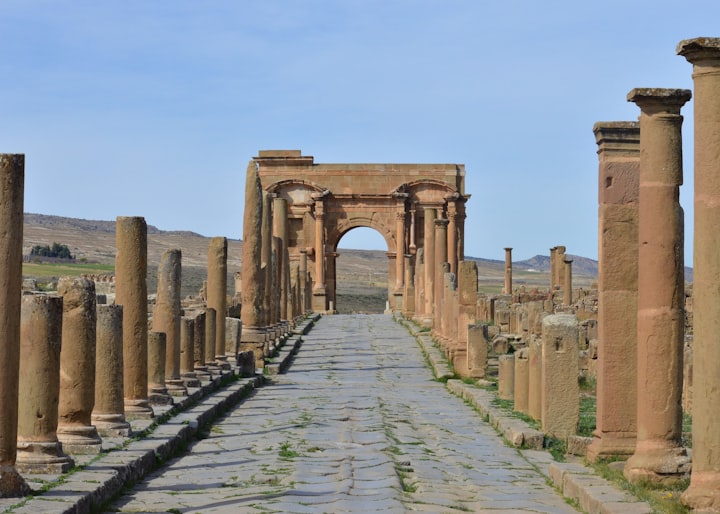
The Roman Empire stands as one of the most influential and enduring civilizations in human history. Its span of over 1,500 years, from its legendary founding in 753 BC to its ultimate decline and fall in 476 AD (or CE, Common Era), is a testament to its resilience, adaptability, and capacity to shape the world. This sprawling empire left an indelible mark on politics, culture, architecture, law, and countless other facets of human civilization. To comprehensively explore the Roman Empire's legacy, it is essential to delve into its origins, rise, governance, culture, contributions, and ultimate decline.
Origins and Early History
The story of the Roman Empire begins with the legendary tale of Romulus and Remus, the twin brothers who, according to mythology, were raised by a she-wolf and later founded the city of Rome in 753 BC. While this origin story is likely more myth than fact, it illustrates the early Romans' sense of identity and destiny. Rome was ideally situated for growth, with fertile soil, access to the Tiber River, and proximity to the Mediterranean Sea.
In its early years, Rome was a monarchy, followed by a republic around 509 BC. The Roman Republic marked a pivotal shift in governance, as it introduced principles of civic participation and checks and balances. However, it was also marked by internal strife and external conflicts, particularly with the Carthaginian Empire during the Punic Wars. Rome's eventual victory over Carthage in 146 BC signified its emergence as a dominant Mediterranean power.
The Rise of the Roman Empire
The rise of the Roman Empire can be attributed to a combination of military conquests, political innovation, and the spread of Roman culture. One of the most influential figures in this transformation was Julius Caesar. His military campaigns, political maneuvering, and eventual assassination in 44 BC paved the way for the rise of the Roman Empire under the leadership of his nephew and adopted son, Augustus.
Augustus, who ruled from 27 BC to 14 AD, is often regarded as the first Roman Emperor. He skillfully consolidated power, restored order to the Roman state, and initiated an era of relative stability known as the Pax Romana, which lasted for approximately two centuries. During this period, the Roman Empire expanded its territory, encompassing vast regions of Europe, North Africa, and the Middle East.
Roman Governance and Administration
The Roman Empire's governance structure played a crucial role in its success and longevity. At its height, the empire was divided into provinces, each with its governor. Roman law, administered through a complex legal system, ensured a degree of uniformity and justice across the vast territories. The Roman Senate, while gradually losing political power, remained an influential institution throughout the empire's existence.
Roman governance was characterized by a delicate balance between centralization and decentralization. Local elites often held significant influence and responsibilities within their respective regions. This approach allowed the empire to incorporate diverse cultures and accommodate various administrative needs while maintaining overall control.
Roman Culture and Contributions
One of the most enduring aspects of the Roman Empire is its cultural legacy. Roman architecture, engineering, literature, and art continue to influence the world to this day. The Romans excelled in engineering feats, constructing aqueducts, roads, bridges, and monumental structures such as the Colosseum and the Pantheon. Their innovative use of concrete revolutionized construction techniques.
Roman literature produced influential figures like Cicero, Virgil, and Seneca, who have left a lasting impact on Western thought and philosophy. The Latin language, the lingua franca of the Roman Empire, evolved into the Romance languages spoken across modern Europe.
The Romans also made significant contributions to law and governance. The legal principles established by figures like Cicero and Justinian served as the foundation for many modern legal systems. The concept of "innocent until proven guilty" and the idea of equal protection under the law have their roots in Roman jurisprudence.
Additionally, the Romans introduced innovations in medicine, engineering, and urban planning. Their architectural marvels, like the aqueducts and sewage systems, demonstrated advanced engineering knowledge and a commitment to public health. These contributions significantly improved the quality of life in Roman cities.
The Decline and Fall of the Roman Empire
The decline of the Roman Empire is a complex and debated topic, with numerous factors contributing to its gradual unraveling. Some of the key elements include political instability, economic challenges, military pressures, and external invasions.
The third century AD marked a period of severe crisis for the Roman Empire. Internal strife, economic inflation, and military defeats weakened its central authority. The division of the empire into the Western Roman Empire, with its capital in Rome, and the Eastern Roman Empire, centered in Constantinople, attempted to address these challenges but ultimately proved unsustainable.
The Western Roman Empire faced constant pressure from barbarian invasions, including the Visigoths, Vandals, and Huns. In 476 AD, the Western Roman Empire officially fell when the Germanic chieftain Odoacer deposed the last Roman emperor, Romulus Augustulus. However, the Eastern Roman Empire, often referred to as the Byzantine Empire, endured for nearly a millennium until the fall of Constantinople in 1453.
While the fall of the Western Roman Empire is often seen as a dramatic endpoint, it is essential to recognize the enduring legacy of the Roman Empire through its eastern counterpart and its profound influence on the development of European culture and institutions.
Legacy of the Roman Empire
The legacy of the Roman Empire is multifaceted and enduring, shaping the course of history in various ways:
Language and Culture: Latin, the language of the Romans, has left an indelible mark on European languages, giving rise to the Romance languages such as French, Spanish, Italian, and Portuguese. Roman architecture, art, and literature continue to inspire artists and architects worldwide.
Law and Governance: Roman legal principles laid the foundation for modern legal systems, including concepts of justice, due process, and individual rights. The idea of a republic, as articulated by the Roman Republic, has been influential in the development of democratic governance.
Engineering and Infrastructure: The Romans' engineering achievements, including roads, aqueducts, and buildings, remain iconic examples of human ingenuity. Many of their construction techniques are still used in modern civil engineering.
Christianity: The spread of Christianity, which eventually became the dominant religion of Europe, was facilitated by the Roman Empire. The conversion of Emperor Constantine in the early 4th century AD played a pivotal role in this process.
Legacy of Governance: The Roman Empire's administrative structures, including the division of provinces and the use of governors, influenced subsequent empires and governments. The idea of a centralized bureaucracy and the concept of imperial rule have left a lasting legacy.
Historical and Cultural Heritage: The Roman Empire's rich history and mythology continue to captivate the imagination of people worldwide. Roman historical accounts, such as those by Livy and Tacitus, provide invaluable insights into ancient civilization.
In conclusion, the Roman Empire stands as a monumental chapter in human history, marked by its rise from humble origins to global dominance, its innovations in governance and culture, and its eventual decline. Its legacy endures in myriad ways, from language and law to engineering and culture. The Roman Empire's enduring influence serves as a testament to the enduring power of human civilization to shape the world and leave an indelible mark on future generations.
About the Creator
solomon Christian
A first class graduate of mathemathics at the University of Technology lautech.






Comments (2)
thank you sir
Good job! Thumb! Good! Job!